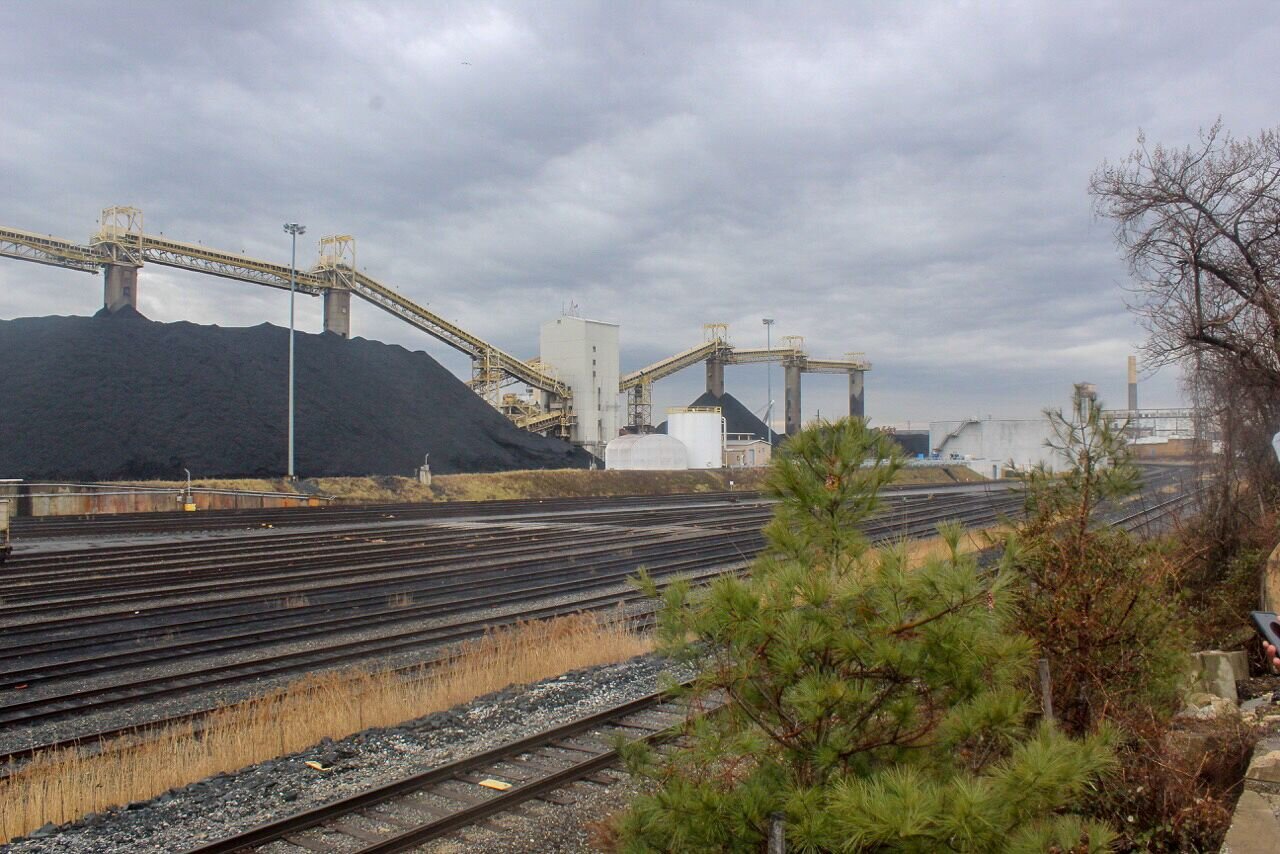
NORTH AMERICAN ENVIRONMENTAL JUSTICE.
Fighting to Breathe: Race, Toxicity and the Rise of Youth Activism in Baltimore (University of California Press 2022) looks at the cumulative impacts of industrial stationary toxic facilities in South Baltimore. It follows a dynamic and creative group of high school students who decided to fight back against the race- and class-based health disparities and inequality of industrial expansion. As a Baltimore resident and activist-scholar, Fabricant documents how these young organizers came to envision, design, and create a more just and sustainable future. Fighting to Breathe received the 2024 APLA book prize for best critical ethnography in political anthropology.
Her new research examines the political economy of coal (from extraction to export). She documents political campaigns of solidarity and resistance across the entire supply chain from Appalachia to Baltimore of activists organize for a Just Transition from coal. She is currently working on a manuscript on the Need for the Re-nationalization and Electrification of Rail.
Violent Supply Chains: Mapping Coal from Point of Extraction to Export in Baltimore. The primary objective of this research is to investigate the environmental and human health consequences of the entire coal supply chain—from points of extraction in Pennsylvania and West Virginia to export sites in Baltimore, particularly Curtis Bay. Most of the deep geographic and ethnographic work will follow and understand the communal harms along the CSX and Norfolk Southern coal trains. This research will analyze the interconnected hazards faced by those living and working near extraction sites, transportation corridors, and export facilities. This project is both geographic and anthropological in nature and will utilize GIS mapping and ethnographic or qualitative methodologies.

Related research
-
Forthcoming | Who has Coal Fever? The Invisible Violence of Coal Supply Chain from Extraction to Export in the 1970s & 80s, Antipode. Under Review.
Forthcoming | with Daniel Cummings. Toxic Landscapes, Toxic Footprints of Eds and Meds: Who bears the burden of burning biohazardous waste? Urban History, Under Review.
2023 | The Fire that Burns: Personal and Social Biographies that Shape our Political Engagements. Practicing Anthropology 45(4): 17-20. Read.
2019 | Overburdened Bodies and Lands: Industrial Development and Environmental Injustice in South Baltimore In Baltimore Revisited: Stories of Inequality and Resistance in a US City, Nicole King, Kate Drabinski Rutgers University Press. Read. -
2024 | Futures after Progress: Hope and Doubt in Late Industrial Baltimore. Medical Anthropology Quarterly. Read.
2021 | Bolivia in the Age of Gas. Journal of Latin American Geography: 20(3): 217-219. Read.
2021 | Review of Bret Gustafson’s Bolivia in the Age of Gas and Thea Riofrancos’s Resource Radicals NACLA Report on the Americas 53 (1): 100-101. Read.
-
2024 | A Cross-State Movement to Hold Railroads Accountable: A year after the Norfolk Southern train derailment, activists in East Palestine are teaming up with advocates in Baltimore to demand justice. Yes Magazine. Read.
2022 | with Shashawnda Campbell. Baltimore’s Sacrifice Zone is owed Reparations, Peste Magazine. Read.
-
2024 | WYPR. Listen.
2024 | Go Green Podcast. Listen.
2024 | Fighting to Breathe: An Episode with Nicole Fabricant. Chemical Sensitivity Podcast, Episode 42. Listen.
2024 | We are all Sacrifice Zones, Nicole Fabricant on KPFA Project Censored. Listen.
2024 | Justice for East Palestine Residents and Workers Conference in E. Palestine, OH. Listen.
2023 | NPR Code Switch Student Activists are Pushing Back Against Big Polluters and Winning. Listen.
2023 | Harm City: On a Toxic Tour of Curtis Bay, Academics and Activists See a Hidden Part of Baltimore. Read.
-